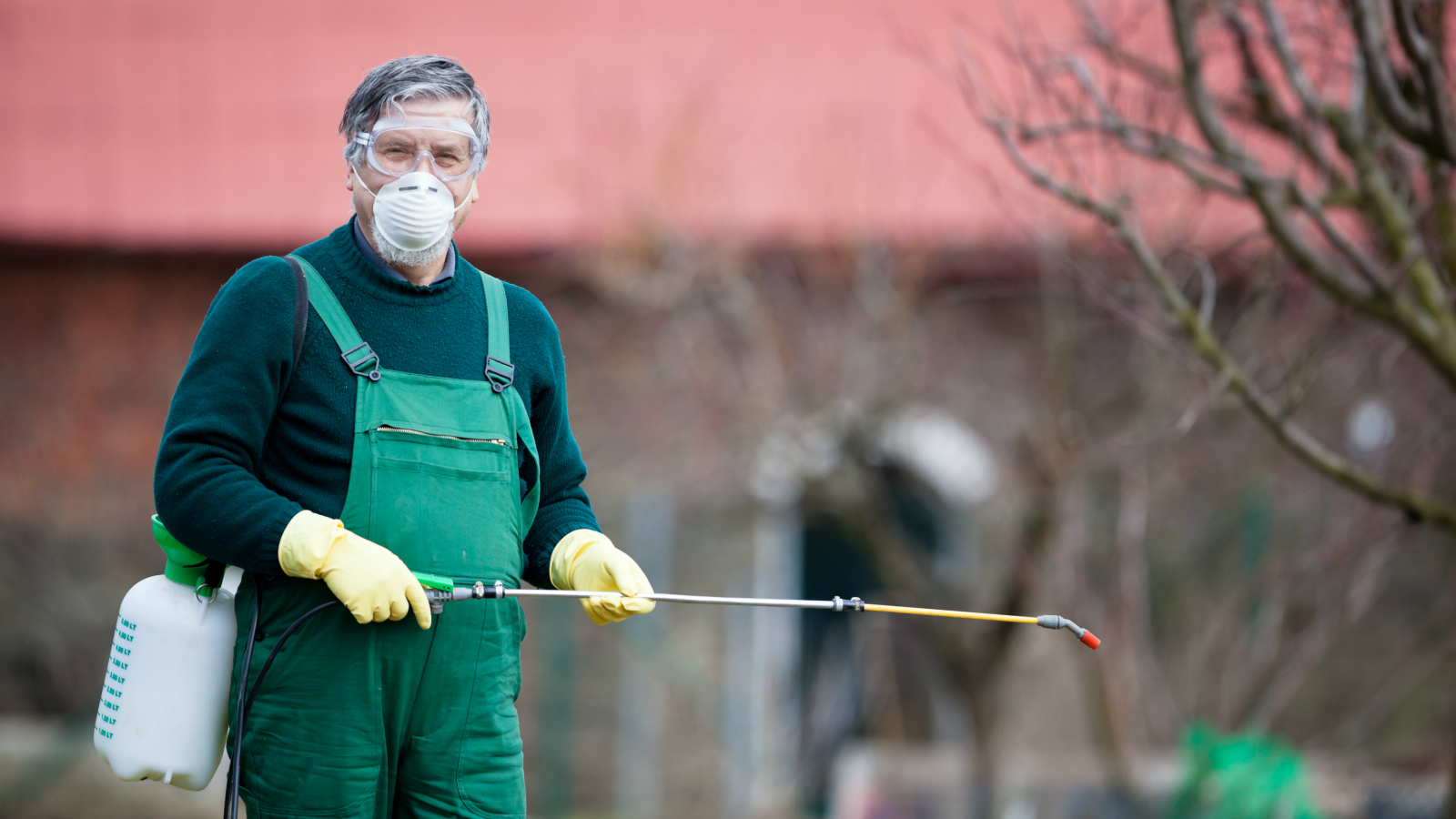Q. Dear Umbra,
Our neighbor two doors over has his newly planted peach orchard sprayed using an industrial-type sprayer. The spray drifts over here while we are out in our yard. Although we are quite a distance away, we can still smell it. Other neighbors, who have horses and cows, are also smelling the spray. Is there anything I can do?
Gayle C.
Winter Haven, Florida
A. Dearest Gayle,
If good fences make good neighbors, what, then, makes bad neighbors? Here’s one thing: spraying toxic chemicals all over the neighborhood, especially without warning nearby residents (not to mention the horses and cows). You don’t specify whether this neighbor is a commercial orchard or simply a guy who loves peaches — but from your perspective, it doesn’t matter that much. The dangers of the pesticides wafting over to your yard are the same, as are many of your options for dealing with them.
Your problem is common enough to have an official name: pesticide drift. That’s just what it sounds like — herbicides, pesticides, fungicides, and any other noxious -icides floating away from their intended target and settling on nearby water, soil, homes, and yards. Sprayers can and should take steps to prevent it — by using the proper techniques and equipment, and by avoiding windy days — but there’s evidence that drift happens even when people follow best practices to a T. Pesticide drift is also often accompanied by its vile cousin, volatilization drift, which occurs when chemicals settle, then rise up again as a vapor well after the initial spraying is done.
All this is concerning, of course, because these nasty pesticides pose a very real health risk to all in their path, from nausea and headaches to cancer and birth defects. In short: You don’t want this stuff anywhere near your home. But the fact that you can smell it means it’s drifting your way.
The way I see it, Gayle, there are two main routes you can take to address this neighborly nightmare: Convince him to stop spraying chemicals altogether (hooray!) or, failing that, reduce your exposure to the chemicals.
Let’s start with the negotiation approach. I asked Jay Feldman, executive director of the nonprofit Beyond Pesticides, to guide us through it. He recommended first asking your neighbor which chemicals he’s using, then looking up their specific health risks (which you can do here). “Then share that information with the neighbor,” Feldman said. “Explain what’s in the scientific literature on adverse effects to human health, or the vulnerability of children and the elderly.” This can even be an effective method if your neighbor is a commercial orchard: “Often, the companies themselves are not aware of what the potential adverse effects are,” Feldman added. Either way, starting the conversation in an open, cooperative manner rather than a judgmental, know-it-all one is always a good idea. You catch more pesticide-addled flies with honey than with vinegar, as my mother always said.
Best-case scenario: Your neighbor had no idea and is horrified enough to cease and desist with the spraying. But you might instead get some version of the “Butt out!” response. In that case, very unfortunately, you don’t have a lot of power to stop him. Anyone who is allowing pesticide drift is acting in violation of the chemical’s label, which is a reportable offense, said Feldman: You can file a complaint with your state’s pesticide regulatory agency (often part of the agriculture department; here’s Florida’s). Still, drift can be tough to prove, and enforcement tends to be lax. The next option up is much more drastic — straight-up suing him — but it could be worth considering if the offense is egregious enough.
Let’s say your neighbor continues spraying. What then? I hope he’ll at least be open to warning you before he lets loose each batch of chemicals. Here’s where commercial outfits differ from plain old fruit-tree fans: In some states, notification laws require sprayers on commercial farms to alert people before deploying pesticides. In Florida, they only have to alert medically vulnerable people, so you’d have to register and provide a doctor’s note to get the heads-up, but peace of mind may make this worthwhile for you.
If you do get advance warning, you can reduce your chances of exposure by closing all windows; shutting down your heating/cooling system vents; taking pets, laundry, toys, and patio furniture inside; and then going elsewhere for a few hours if possible. A line of trees or other barriers on the edge of your yard can also help block your garden and lawn.
I wish I could report some stronger protections for you, Gayle, but until we beef up the regulation and enforcement around pesticides, these are your best bets. Oh, and buying some delicious, organic, local peaches can’t hurt. The more we demand non-pesticide-y produce, the less reason growers of any kind have to spray. Good luck.
Beautiful-day-for-a-neighborly,
Umbra



